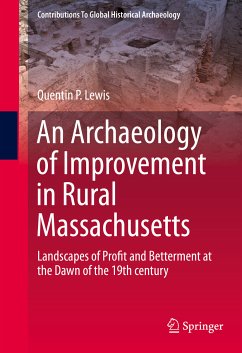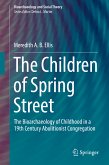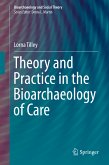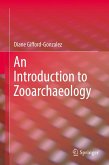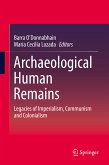Utilizing archaeological data from the home of a wealthy farmer in rural Western Massachusetts, as well as an analysis of early Republican agricultural publications, this book shows how Improvement's twin meanings of profit and betterment unfolded unevenly across early 19th century New England. The Improvement movement in Massachusetts emerged at a time of great social instability, and served to ameliorate growing tensions between urban and rural socioeconomic life through a rationalization of space. Alongside this rationalization, Improvement also served to reshape rural landscapes in keeping with the social and economic processes of a modernizing global capitalism. But the contradictions inherent in such processes spurred and buttressed wealth inequality, ecological distress, and social dislocation.
Dieser Download kann aus rechtlichen Gründen nur mit Rechnungsadresse in A, B, BG, CY, CZ, D, DK, EW, E, FIN, F, GR, HR, H, IRL, I, LT, L, LR, M, NL, PL, P, R, S, SLO, SK ausgeliefert werden.

